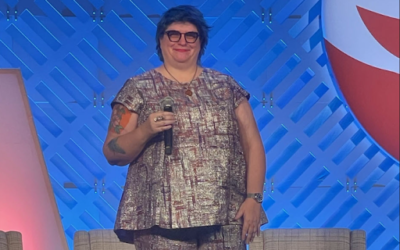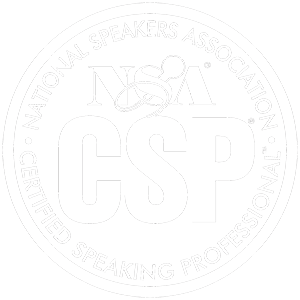Crafting apologies takes understanding these 4 assumptions.
“I’m sorry if you were offended.”
“I’m sorry if you missed your deadline on my account.”
When you’re apologizing, is this how it comes out?
If so, you’re missing the mark.
There are some key ingredients when you’re crafting apologies. Humility is the obvious one, but knowing how to apologize – and being clear on the outcome – that’s absolutely non-negotiable.
Here’s what I mean…
If there’s an ‘if’ you’re already doomed.
I do quite a bit of work crafting apologies for people and organizations who have found themselves on the wrong side of shifting social and workplace norms. I’m always pleased to be part of the exercise because it indicates a potential for growth.
Why do I find myself helping people apologize so often? Because we’re in a time of rapid societal change – for the better – and making mistakes is absolutely inevitable if you’re functioning in society at large. Atoning for them properly is the tricky bit.
There are some simple steps you can take when crafting apologies that will not only assuage the pain for the person you’ve hurt…they’ll open up the door for greater understanding. And, with any luck, you’ll avoid making the same mistakes over and over…
So, why no “if” in your apology?
Because it’s an indication that you’re denying something actually happened. And it did, otherwise, you wouldn’t be searching for a way to apologize, would you?
If you’ve said or done something that offended someone else, you don’t get to act like you didn’t. You’re invalidating the pain someone else experienced. I’m constantly reminding my clients: if someone says they’re offended, you don’t get to tell them they’re not!
If you’re hedging your apology with an “if” it’s a clear demonstration that:
- You’re not taking responsibility for your actions.
- You haven’t put yourself in the other person’s shoes and thought about how you would feel at the receiving end of your words or actions.
- You haven’t really taken time to understand the nature of the offence.
Don’t misunderstand me. You don’t have to feel the same way they do…in fact, you almost certainly can’t. You just have to stretch your empathy and understanding muscles in order to reach into the emotional and intellectual space the other person inhabits.
4 safe assumptions to guide your apologies.
When you’re crafting apologies, it’s wise to operate under these four assumptions.
Assumption #1 An apology can’t be IF needed. It is, or it isn’t.
Assumption #2 We have all done things out of ignorance and may not even remember them.
Assumption #3 We are responsible for our collective pasts, presents, and futures, regardless of whether we did an egregious act or not.
Assumption #4 You are not entitled to anything, despite your interest in learning.
Let’s take a closer look at #3 and #4 because they’re extremely important…
If you’re on board with assumption #3 then you hold responsibility for the constructs and rules we all navigate in society.
Stay with me here…
I do a great deal of volunteer work with Fraternity and Sorority members across the country – on campus and in their National Offices and Councils.
During a visit a few years ago I worked with a fraternity that had nearly lost a new member to alcohol poisoning.
“It isn’t my fault the kid didn’t know his limits.” was the assertion from one of the students.
I explained to him that I feel responsible for the health and safety of all living things on the planet. I wasn’t the person who tapped the keg at his party, but I acknowledge that I’m part of a society that enables someone to feel the pressure to make poor choices. That includes allowing someone to nearly drink themselves to death. For that, I bear responsibility. I benefit from the systems that allow us to make these poor choices…I must commit to doing better as a human being.
I’ve said I’m sorry…now what do I get in return?
Regarding assumption #4, nothing takes away from the impact of an apology like a quid pro quo.
Politicians can be the worst culprits, but we do it in business and in our personal lives, too. We see it most obviously in politics because the participants are public figures…their lives and choices are very public. And we feel they owe us their good behavior by virtue of our vote and their paycheck.
But, they also feel that we owe them our loyalty once they’ve apologized for their blunders – whether it’s a tone-deaf comment regarding gender or race, or outright fraud or illegal activities.
You are not owed anything by the person you’ve wronged just because you’ve apologized.
An apology is transaction neutral. It doesn’t add a credit to your account. If you’ve explored the reason your words or actions were offensive, sought to do better in the future, and apologized sincerely, you’re well on your way to healing yourself and opening the door for the other person to heal, as well.
Just don’t demand evidence that the other person feels requited. That’s not how it works.
You can be a role model. Start by fulfilling your promises. And when you don’t, apologize.
Would you like help crafting an apology, or want to learn why an apology is in order? I’d love to help you learn about the issues facing business leaders today. Let’s get talking.
Take Your Event To The Next Level, Book Jess Today!
Take Your Event To The Next Level, Book Jess Today!
Related Blog Posts
Welcoming back audiences that might be at different comfort levels after the last year?
Welcoming back audiences that might be at different comfort levels after the last year? A different question – What would you keep? March 6th. May 12th. May 15th. We all have dates from the past year that we will remember. Perhaps it was a...
Jessica Pettitt: Championing Diversity and Inclusion as a Keynote Speaker
In the dynamic world of keynote speaking, Jessica Pettitt stands out as a beacon of diversity, inclusion, and transformational change. Her unique approach combines humor, real-life experiences, and actionable insights, making her a sought-after...
First steps to take when building back a more diverse workforce
First steps to take when building back a more diverse workforce Utilize disruption for growth There are a lot of metaphors turned cliches, and sometimes they are worth it. This big city gal moved into Northern California more than a decade ago,...











0 Comments